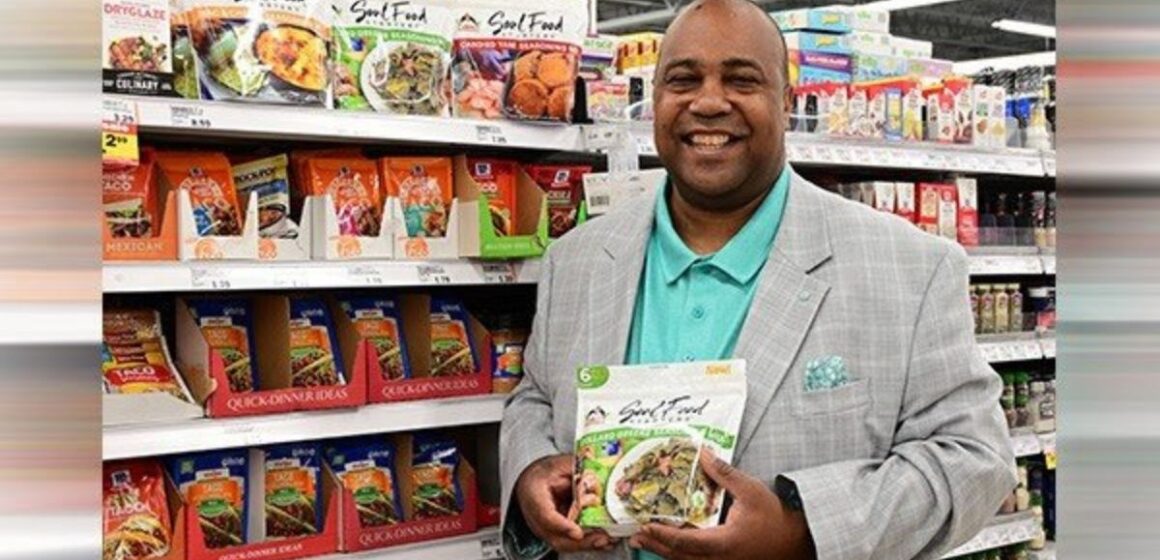Meet a culinary expert and business leader Claude Booker, the CEO, and founder of Booker’s Soul Food Starters which are now available in over 1,000 grocery stores across the country. His business providing Southern side dishes for buffets was decimated as a direct result of the pandemic, and most buffets remain closed.
He pivoted his business during the pandemic and went from ideation to grocery store shelves with Booker’s Soul Food Starters in nine months. He did not shy away from his commitments to building a supply chain filled with domestic Black-owned businesses. The partnership with other Black businesses encourages more opportunities for those businesses and allows them to employ other Black Americans.
“When the pandemic hit in 2020, I lost 90% of my hot food and steam table business during the shutdown,” said Claude. “We pivoted and created pantry-ready seasonings for soul food during the pandemic because more people were eating at home. We went from creation to 1,000 stores in the midst of a pandemic.”
Booker’s Soul Food Starters enables any home cook to create the traditional flavors of collard greens, mac and cheese, peach cobbler, and more by adding their own fresh ingredients to the starter. The products are now sold online and in over 1,000 locations nationwide, including at Meijer, Stop & Shop, KeHE, Cost Plus World Market, VW Roses, and Sam’s Club.
According to author Brooke Stephens’ book, Talking Dollars and Making Sense: A Wealth Building Guide for African-American, the lifespan of a dollar in the Asian community is 28 days, in the Jewish community the lifespan of a dollar is 19 days, and shockingly, the lifespan in the Black community is approximately 6 hours. Booker’s investment in the Black community is intentionally addressing this challenge.
“Pivoting in the pandemic was a valuable lesson in perseverance in entrepreneurship and community. My hope is that other Black entrepreneurs will consider other avenues when one becomes blocked. It’s important for our community to continue to invest in itself and support Black business owners as we strive to close the wealth gap that has existed for too long in this country,” Booker said.
Booker says that he well understands the importance of keeping money in the Black community. Black Americans spend over $1.4 trillion every year. Even though Black buying power is strong, the lack of community access to Black-owned businesses continues to contribute to the wealth gap.
According to Brookings, the pandemic left Black households more vulnerable: “Although Black-owned businesses only represent a minority of all businesses, they are disproportionately likely to operate in sectors most severely affected by the COVID-19 pandemic and associated shutdowns.” Santa Cruz economist, Robert Fairlie, found that more than 2 out of 5 black small businesses and self-employed workers have been forced to shutter during the pandemic — well over twice the rate of white businesses. Claude Booker’s business was no different.



